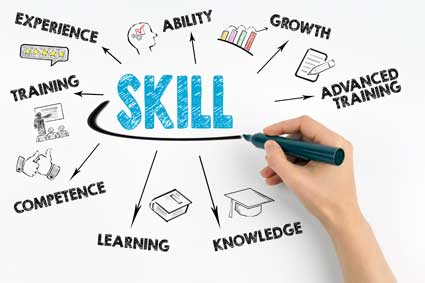Course Description
Managing an efficient classroom, one that fosters learning, understanding and cooperation requires discipline and clear, firm rules. The goal for any teacher is to maintain a sufficient amount of control over the class so that students are not disrupting the learning process, while allowing enough freedom for expression, communication and creativity to flourish. The best case scenario in an unmanaged classroom is distraction and inattention; the worst case can create chaos, pandemonium and even physical harm to students and/or teachers. There are many methods of achieving a well managed classroom that provide clear, kind, authoritative discipline.
This course will cover the most reliable of these such as The Behavior Analysis Model, Assertive Discipline, Cooperative Discipline and Democratic Discipline, as well as several others.
Additionally, this course will cover creating your own unique discipline program, one that is molded to work for you and your students. Other topics will include managing diverse student populations and working with parents of many types. Lastly, this course will address the extreme issue of how to deal with student violence.
Whether you are a grade school, high school, adult education or pre-school teacher or instructor, you will find great value in this course. Student and substitute teachers will also gain great insight from this course
- Completely Online
- Self-Paced
- Printable Lessons
- Full HD Video

- 6 Months to Complete
- 24/7 Availability
- Start Anytime
- PC & Mac Compatible
- Android & iOS Friendly
- Accredited CEUs

Learning Outcomes
- Define what discipline and classroom management is and is not.
- Describe the Behavior Analysis Model.
- Describe Assertive Discipline Model (Lee Canter).
- Describe Cooperative Discipline Model (Albert/Dreikurs/Adlerain).
- Describe reality therapy/choice therapy (William Glasser).
- Summarize teacher effectiveness training model (Thomas Gordon).
- Describe the Democratic Discipline model of classroom management.
- Demonstrate creating your own comprehensive discipline program to meet your classroom management needs.
- Describe additional methods of classroom management and integrating student diversity.
- Describe effective processes for working with parents.
- Summarize managing student violent assaults and breaking up student fights.
- Demonstrate mastery of lesson content at levels of 70% or higher.
Assessment Guide
| Assessment | Points |
|---|---|
| An Introduction | 1 points |
| Lesson 1 Assignment | 5 points |
| Lesson 1 Exam | 10 points |
| Lesson 2 Exam | 10 points |
| Lesson 3 Assignment | 1 points |
| Lesson 3 Exam | 10 points |
| Lesson 4 Exam | 10 points |
| Lesson 5 Exam | 10 points |
| Lesson 6 Exam | 30 points |
| Lesson 7 Exam | 10 points |
| Lesson 8 Assignment | 5 points |
| Lesson 8 Exam | 10 points |
| Lesson 9 Exam | 10 points |
| Lesson 10 Assignment | 5 points |
| Lesson 10 Exam | 10 points |
| Lesson 11 Exam | 10 points |
| Lesson 12 Exam | 9 points |
| The Final Exam | 58 points |



















